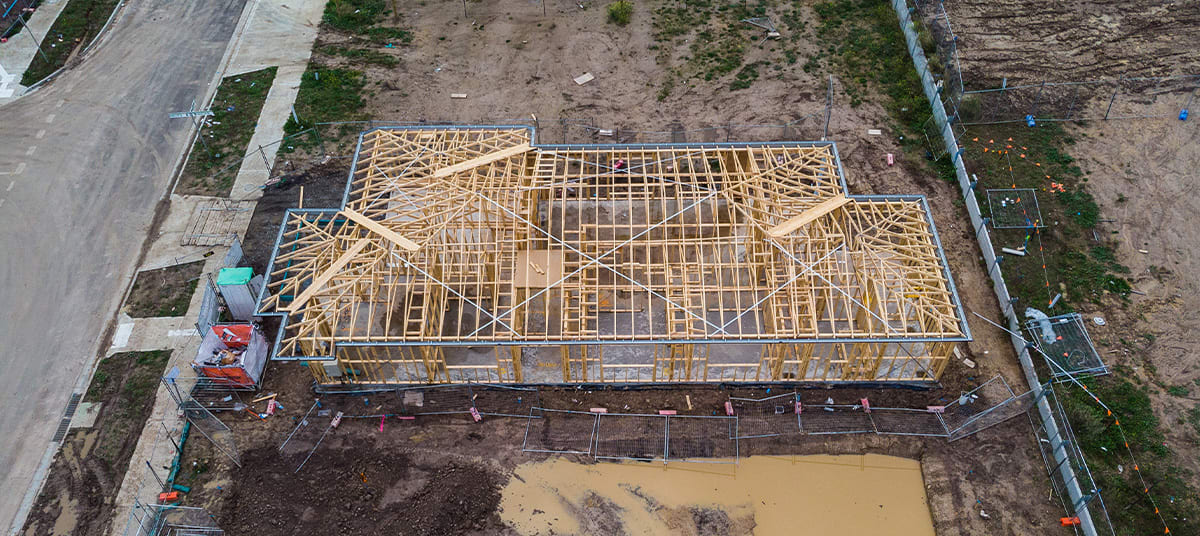
Building approvals jumped 12 per cent in September, with economists flagging incentives for high-density growth and easing rates as core contributors.
Australia’s building pipeline rebounded in September, with total dwelling approvals up 12 per cent, led by a sharp rise in apartment projects in Sydney and Melbourne.
New data from the Australian Bureau of Statistics (ABS) has revealed that 17,019 dwellings were approved in September (in seasonally adjusted terms), following two consecutive monthly declines.
The rise in total dwellings was driven by a 26.0 per cent rise in private dwellings excluding houses (i.e. semidetached, row, or terrace houses; town houses; and apartments).
In original terms, apartment approvals soared 81.7 per cent to 5,430 dwellings, the highest monthly number for nearly three years (since December 2022).
Town house approvals also increased by 5.7 per cent to 2,616 dwellings.
Private sector houses also rose, up 4.0 per cent, to 9,547 dwellings. This came after the 1.0 per cent drop the month prior and comes following ongoing softness in private housing building approvals.
For September, private housing approvals were driven by growth in NSW (up 7.8 per cent) and Victoria (up 7.3 per cent).
Daniel Rossi, ABS head of construction statistics, noted that Queensland was the only state to fall, with private sector house approvals down 6.9 per cent.
He added that, despite the rise in September, house approvals are around the same level as they were this time last year.
The total value of buildings approved dropped in September by 4.8 per cent, to $16.51 billion, following an 11.3 per cent rise in August.
However, when including alterations and additions, the value of total residential building hit a record high of $10.11 billion, up 7.4 per cent from August.
In contrast, the value of non-residential buildings fell 19.3 per cent to $6.39 billion. This follows a 32.2 per cent rise in August. Despite the drop, the result is 10.9 per cent higher than one year ago.
Economists welcome rebound, but urge caution
Westpac economist Ryan Wells said total approvals “surprised materially to the upside, rising 12.0 per cent in Sep following a couple of weaker reads over Jul (–10.3 per cent) and Aug (–3.6 per cent).”
“We had been anticipating some payback given the surge in new home sales at the start of spring, but a stronger rebound in private unit approvals was the key source of the surprise,” he said.
“Of course, the chief culprit behind the surprise was private unit approvals, which surged +26 per cent in Sep. On a rolling three-month basis, this segment is up +26 per cent on the year – the strongest since 2015,” he said and noted that “NSW is leading the charge (+47 per cent on the year) with Qld not far behind (+37 per cent on the year).”
Wells added that detached house approvals had also “a solid showing”, but that the year-on-year trend “has tracked more-or-less flat over the past year.”
The chief economist at National Australia Bank (NAB), Sally Auld, said on the NAB Morning Call podcast there was “lots going on in apartments, and that was really driven by some really big monthly increases in New South Wales and Victoria.”
“I guess this is ultimately what the government is trying to deliver, which is increased supply of multi-density housing in some of the biggest cities,” she said. “So that big rise in building approvals is sort of getting us back on track in terms of hoping for a little bit of a contribution from residential investment to GDP. So that was solid.”
Economists Madeline Dunk and Adelaide Timbrell from Australia and New Zealand Banking Group (ANZ) noted that while building approvals rose in September, the underlying quarterly data remained subdued.
“We are wary about drawing much signal from the monthly rise, as total dwelling approvals in Q3 grew just 0.1 per cent quarter on quarter,” they said.
“Private house approvals were also unchanged in Q3 (+0.1 per cent quarter on quarter), while private unit/townhouse approvals declined 0.8 per cent quarter on quarter.”
Other economists have said that the pipeline for new buildings has potentially been accelerated as a result of the falling cash rate, which might be driving demand from home buyers, increasing population growth and incentives from the federal and state governments to increase high-density housing.
However, in order to hit the federal government’s National Housing Accord target of building 1.2 million homes by 2029, Australia needs to build around 240,000 new dwellings a year.
Currently, total dwelling commencements are on track to reach around 200,000 in 2026.
HIA senior economist Tom Devitt warned that “the biggest challenge in driving these home building volumes towards the government’s 1.2 million homes target is going to be the price of shovel-ready land,” and noted that “lower interest rates alone will not be sufficient to produce 1.2 million new home builds over the government’s target five-year period.”
[Related: Victoria to overhaul planning laws in bid to boost house building]

